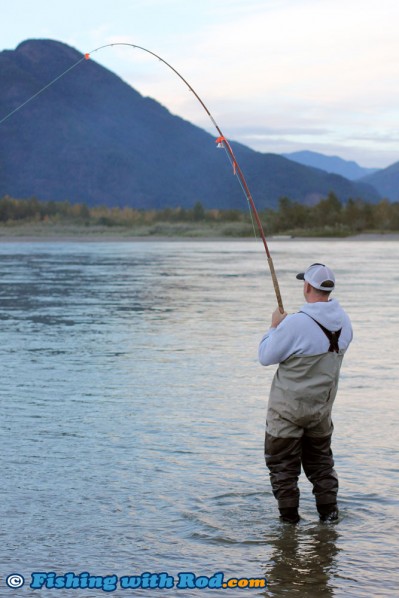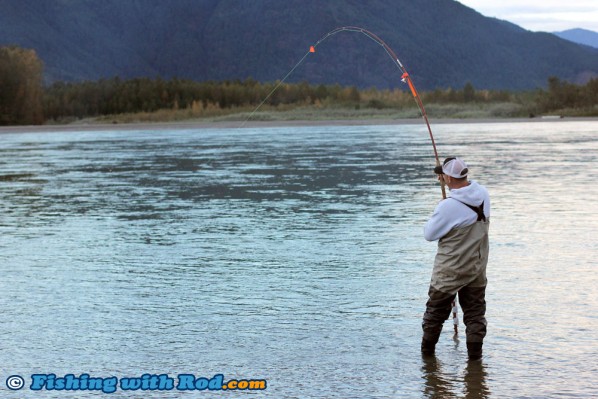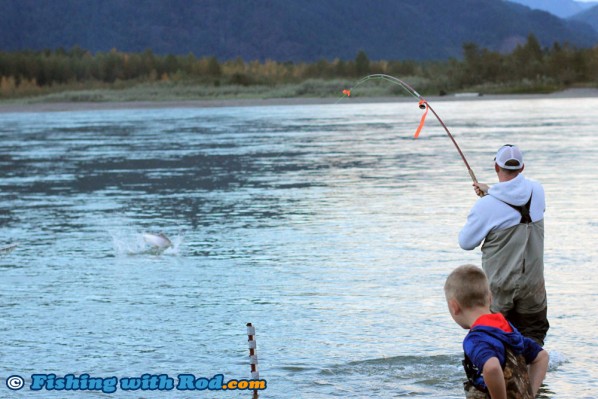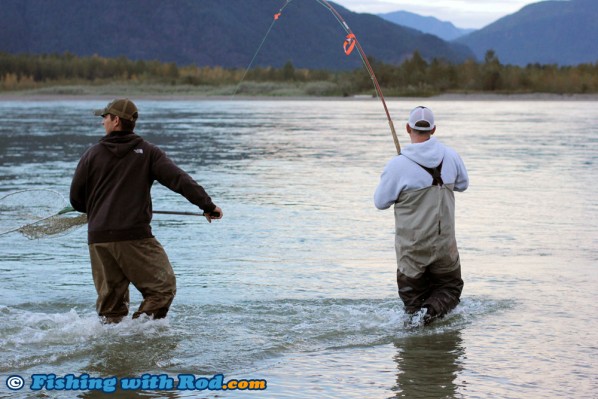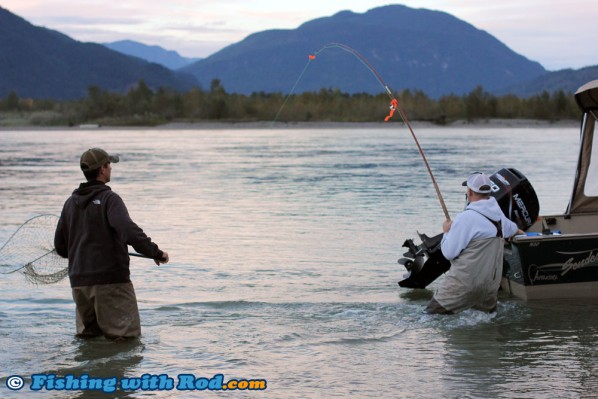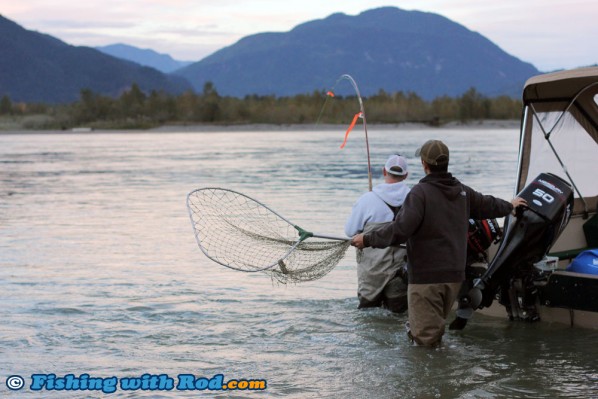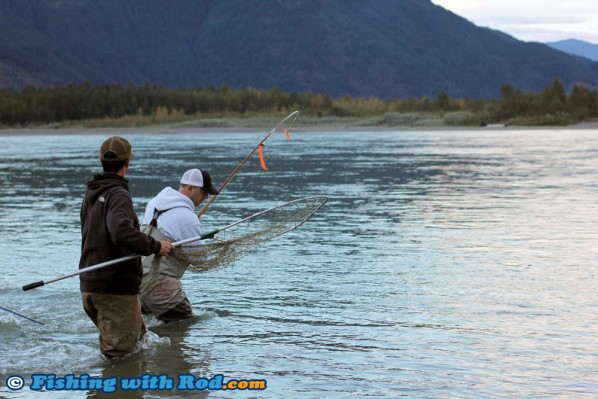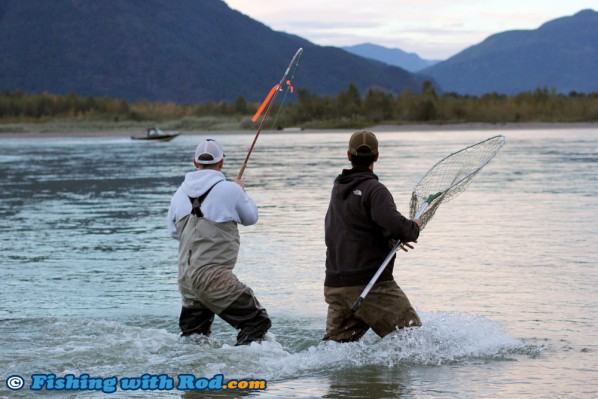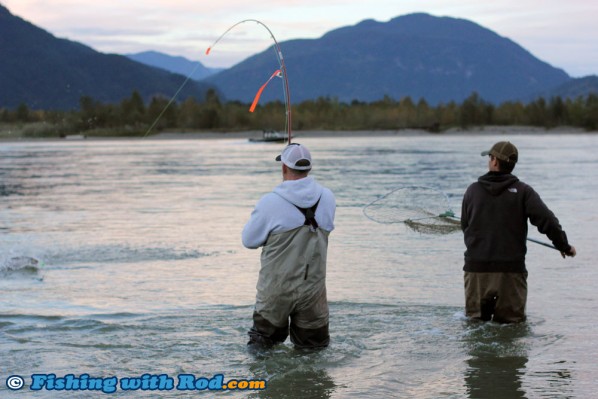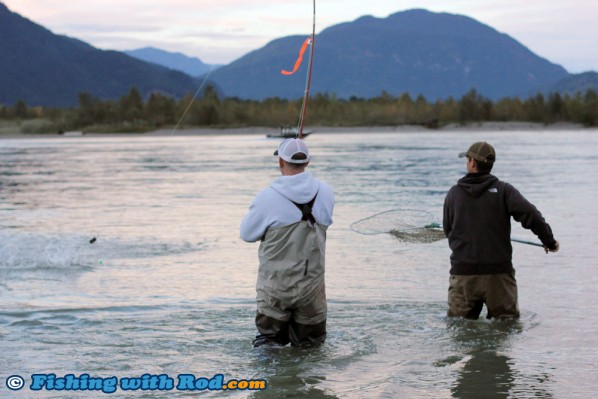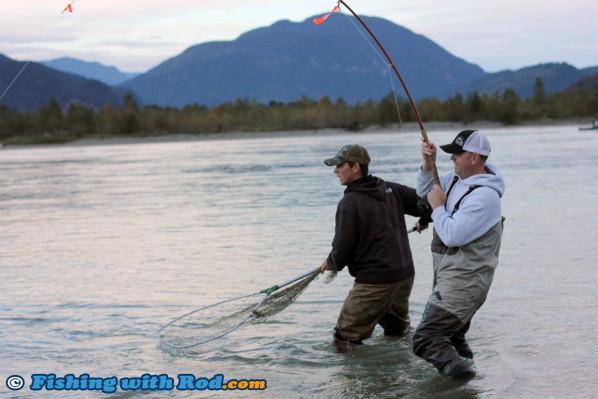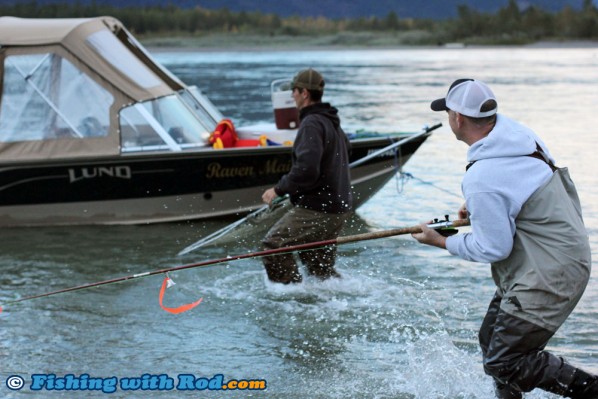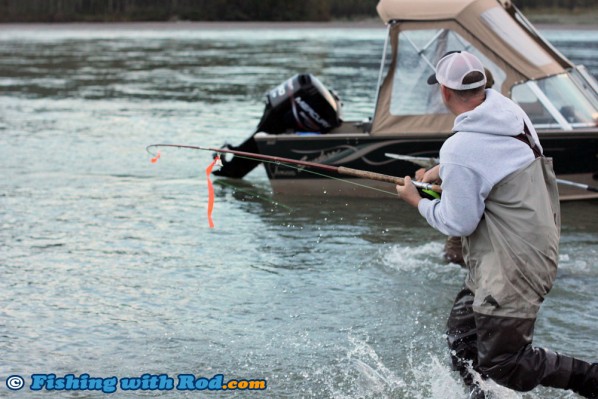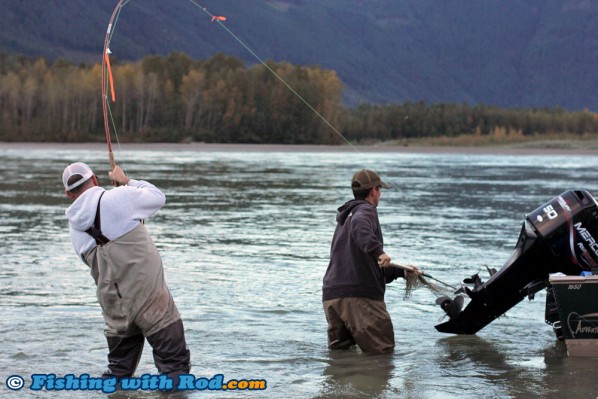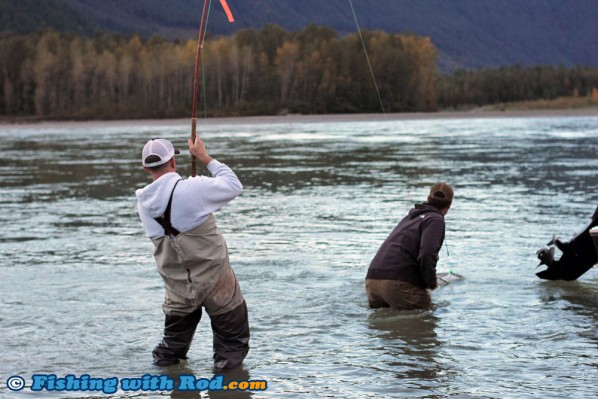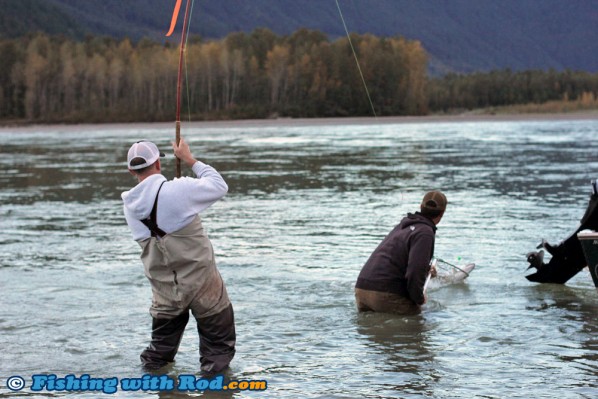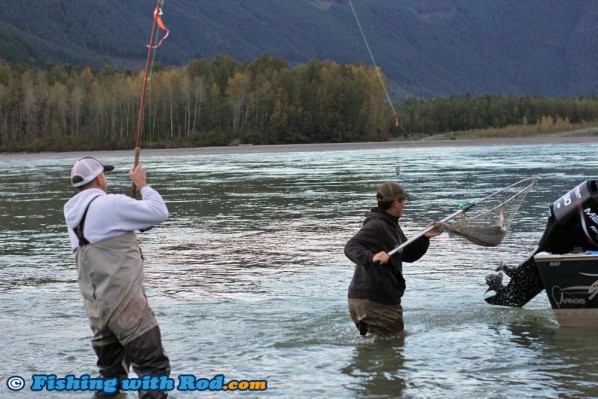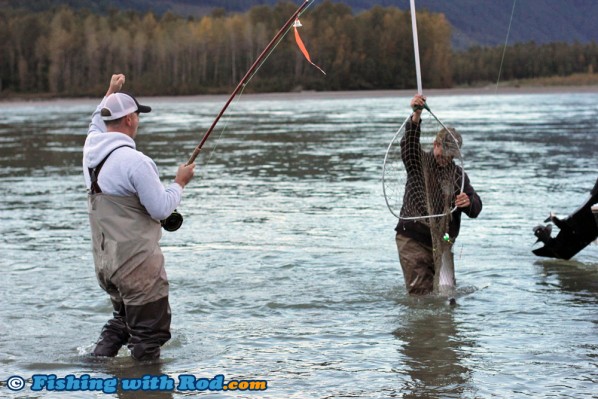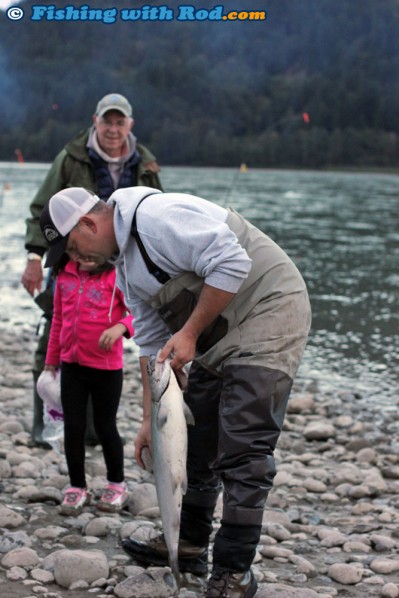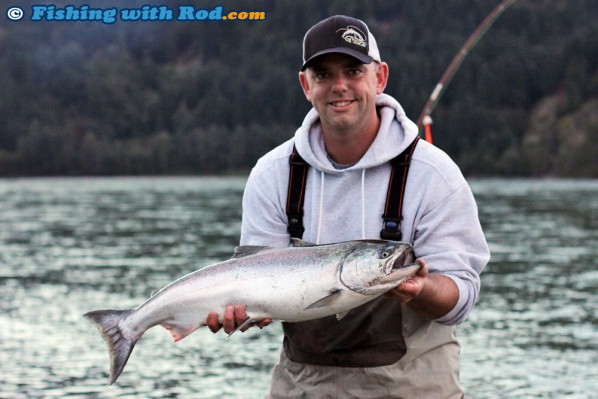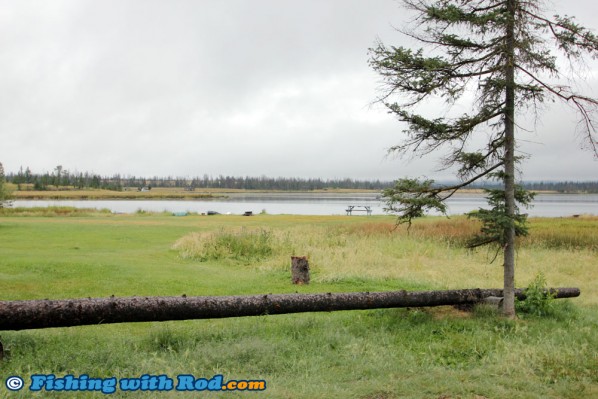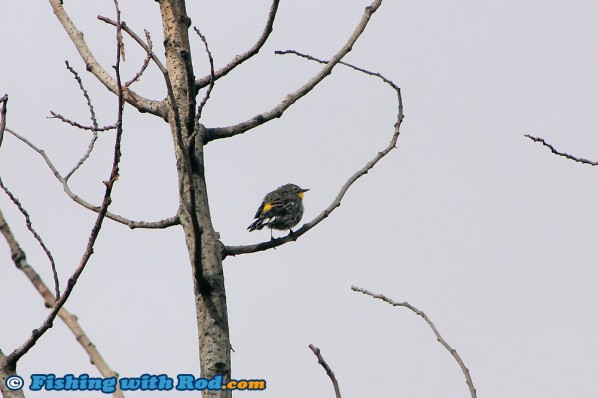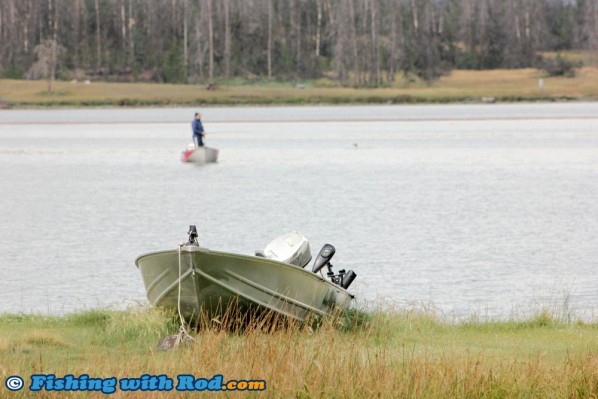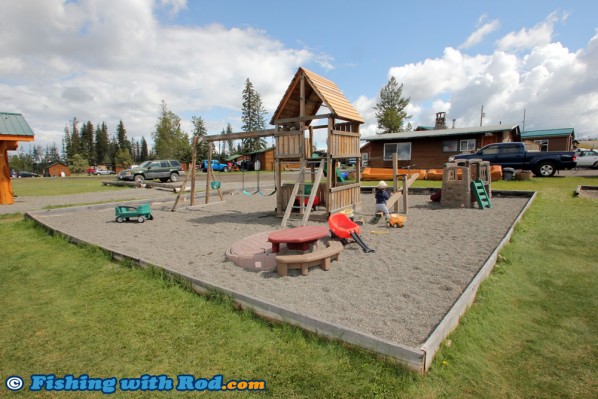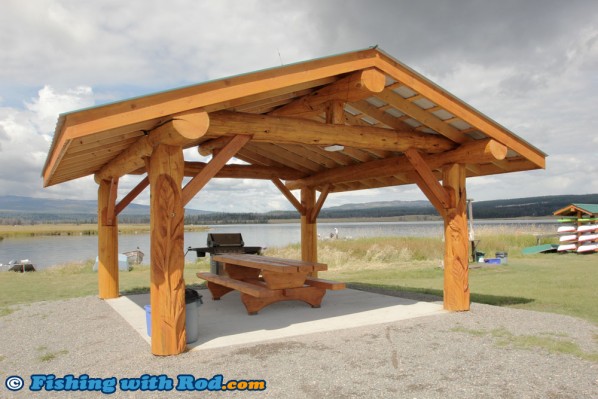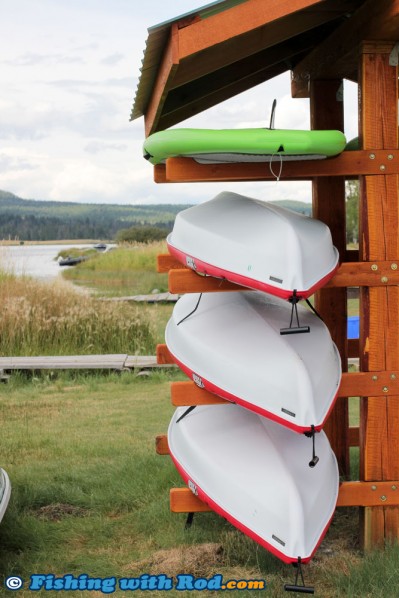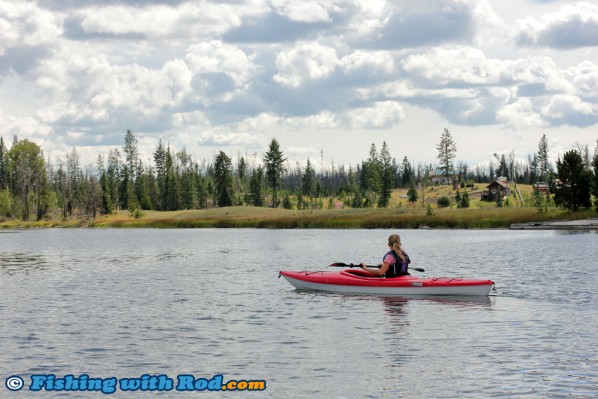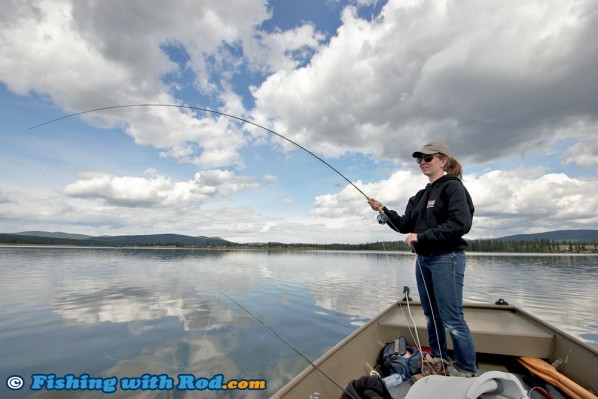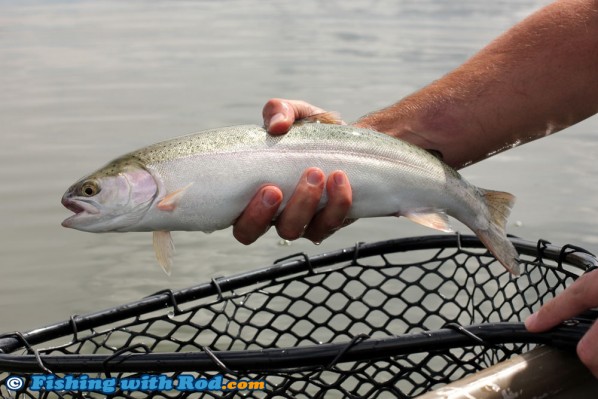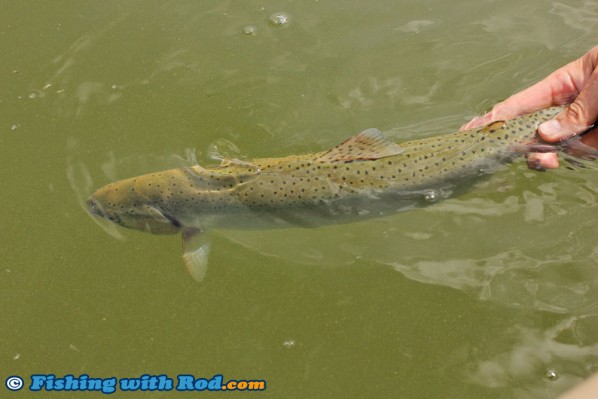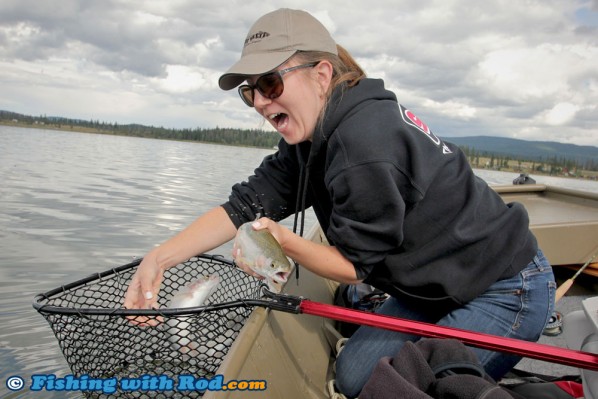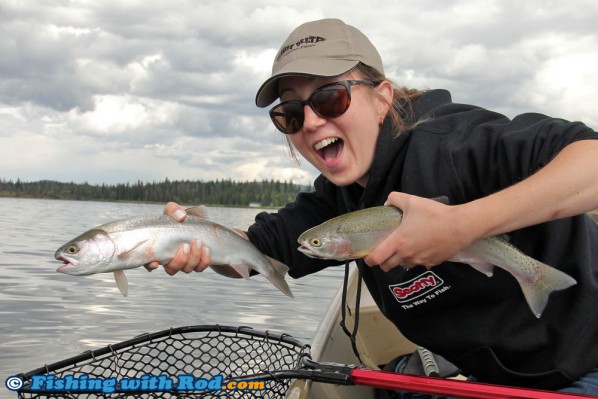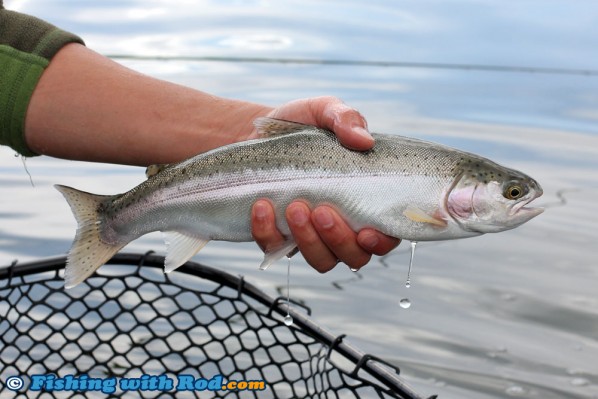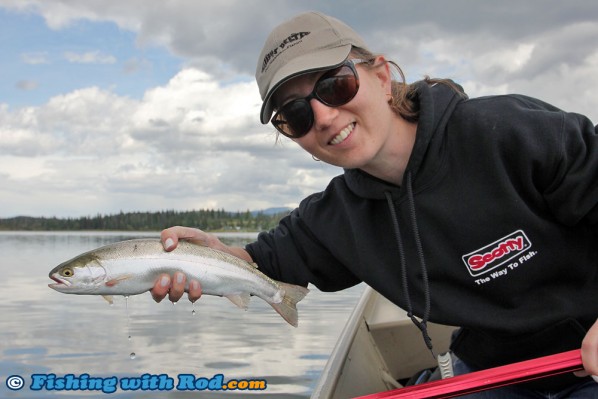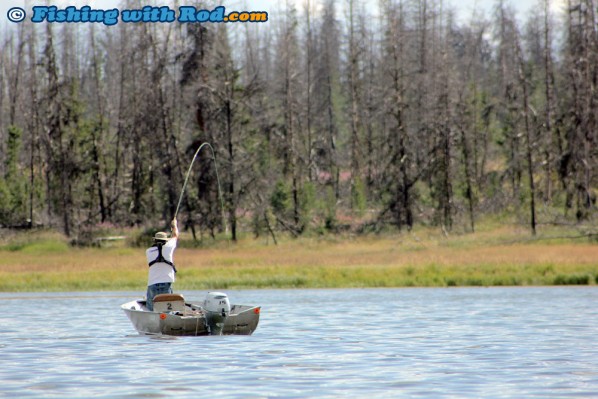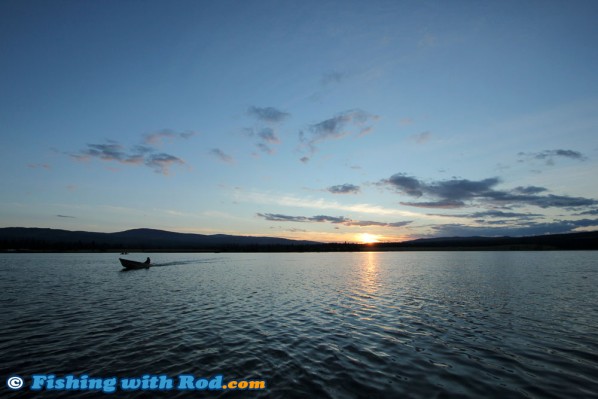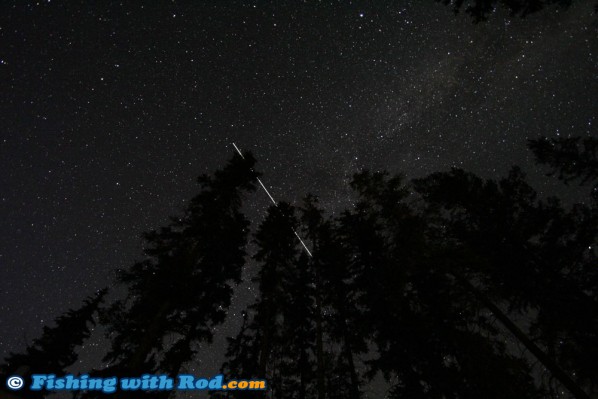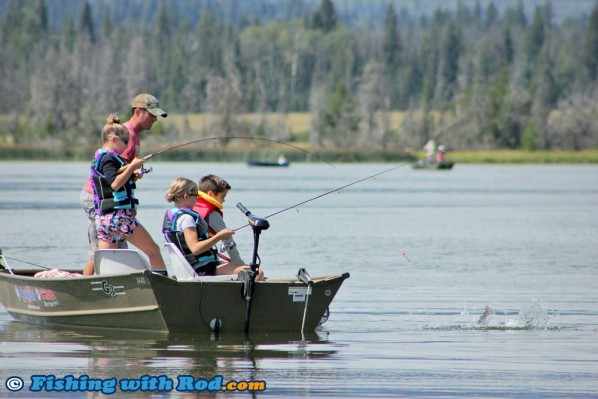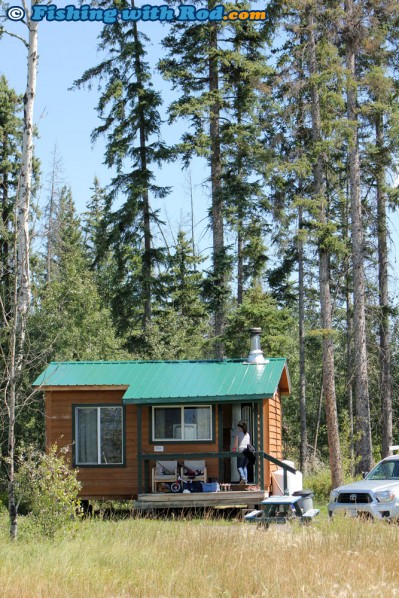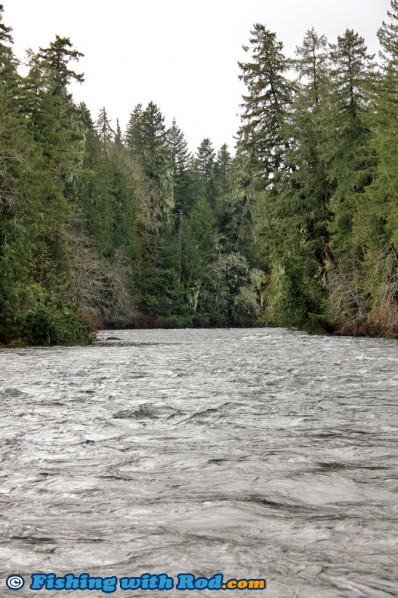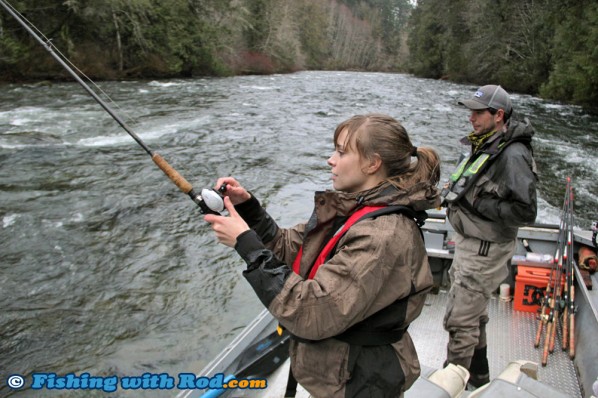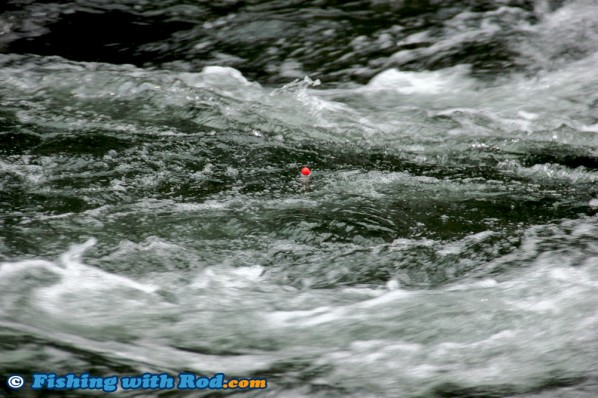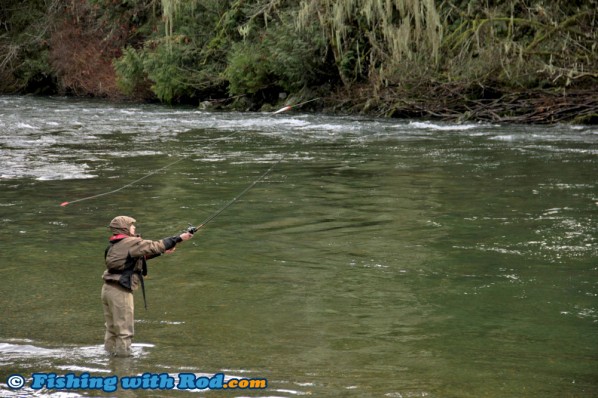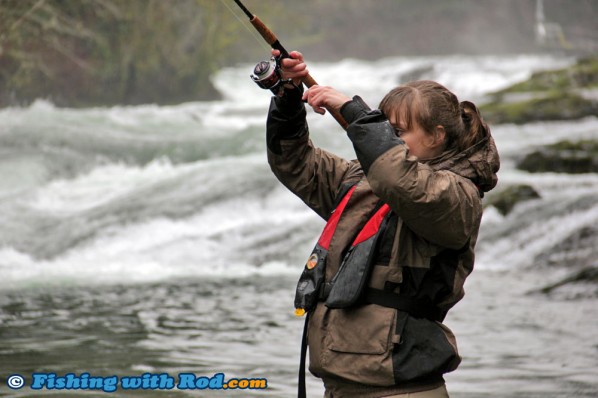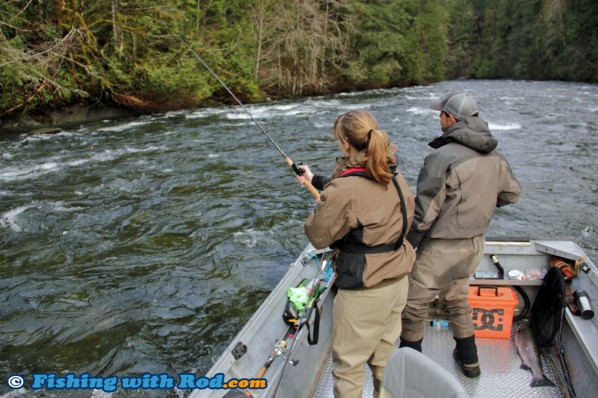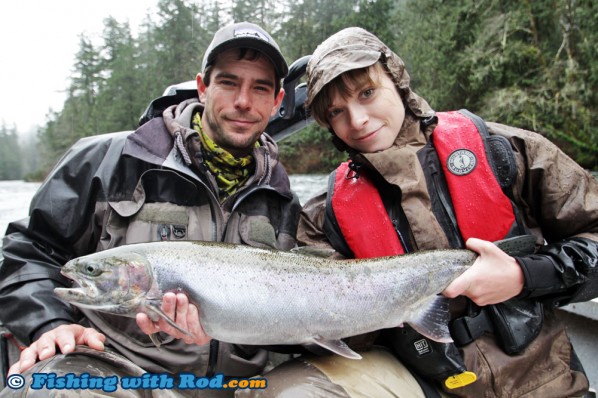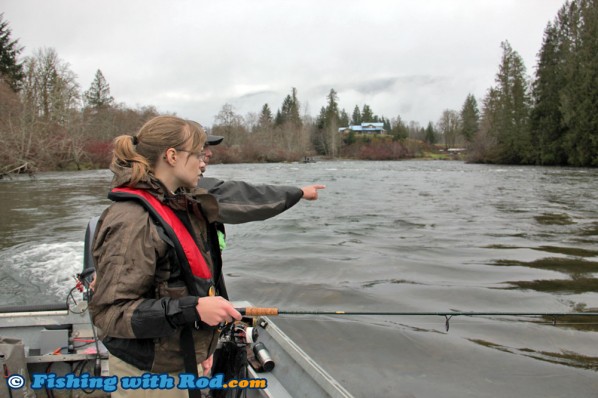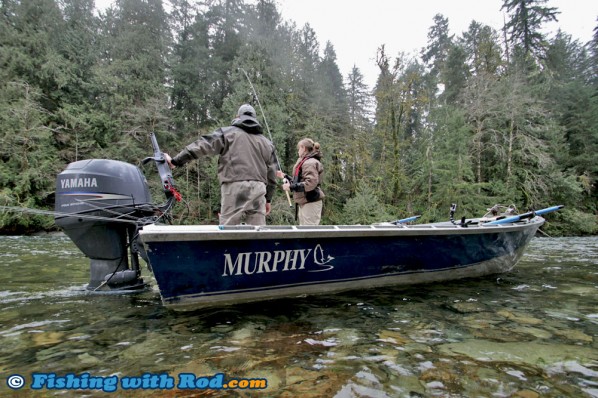Several years ago I was introduced to halibut fishing on Vancouver Island, and this has become one activity which I look forward to every summer. Beside having a chance to haul up a rather big fish from the deep sea, a big appeal of this fishery is tasting a piece of delicious halibut steak afterward. At $20+/lb, what’s better than catching your own and eating fish that is much fresher than the ones bought from the stores?
This spring, we decided to take a trip out with Sea Ghost Fishing Charters, which is based at Pedder Bay Marina just outside of Victoria on Vancouver Island. Originally, we were going to do our trip in April but the last minute cancellation due to gale-force wind left us pretty disappointed. We rescheduled the trip and headed over to this week, and the weather couldn’t have worked out better. Stable, sunny weather meant a relatively calm sea. We just needed the fish to cooperate!
Tagging along with me were Kitty and Jessica, who both work at the Freshwater Fisheries Society of BC and are avid freshwater anglers. Kitty has done several saltwater trips since last year but Jessica has never been fishing in the ocean before.
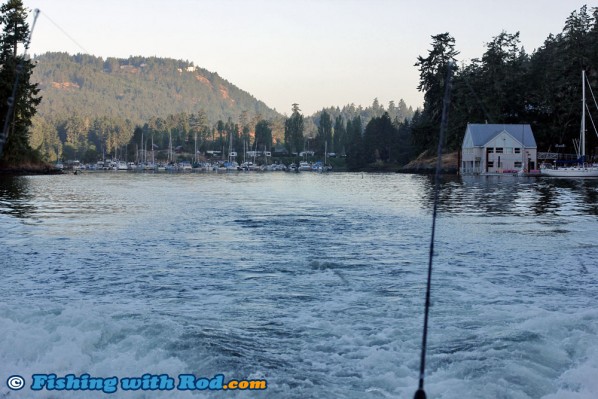
Tucked in between Victoria and Sooke, Pedder Bay is a quiet inlet where summer vacationers can bring their RV and boat for a long stay. The marina has direct access to the Strait of Juan de Fuca, where fishing for both halibut and salmon can be productive throughout most of the year. At 6:00am, we met up with our guide Gord Gavin, who is a seasoned angler in the area and owner/operator of Sea Ghost Fishing Charters. The boat ride from the bay to the fishing spot only took around 20 minutes. A thin layer of fog could be seen in the far horizon, a light breeze could be felt from the West but the clear sunny sky told us that it was going to be a fabulous day.
Once the anchor was set, Gord tied the rods up with Gibbs Delta Tackle’s halibut rigs, which include a spreader bar separating the large weight and the leader. The hooks of choice were circle hooks, which are designed for these fish to hook themselves once they ingest the bait. The hooks were decorated with Hali Hawg grubs, which were then accompanied by a variety of bait including octopus, mackerel and salmon pieces. Three rods were set up and each had one type of bait rigged up in case one was preferred over the other.
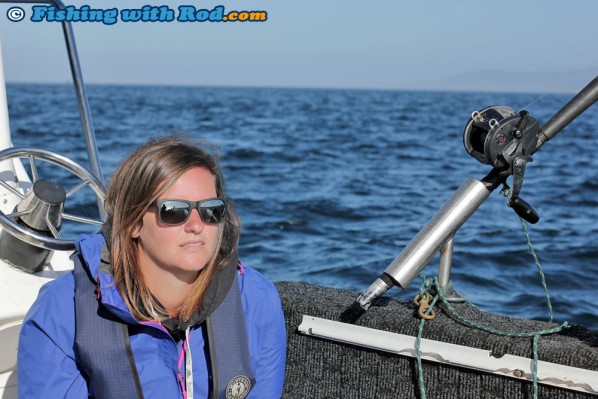
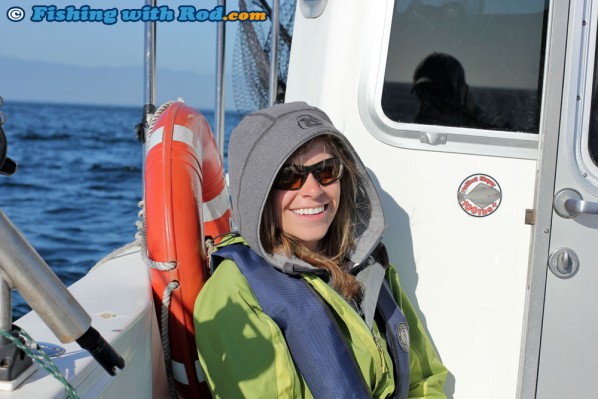
Gord explained that the best time for halibut fishing is in fact when the tide is running. Our goal was to fish until the tide peaked and hope the bite would come on. It is a waiting game, the scent has to travel, drawing those hungry halibut to the bait. Once the bait settled on the bottom, we anticipated for some bites right away but that never happened. The first two hours went by without any action, but Gord was very confident. “It will happen.”, he said. Trusting his decades of experience, we sat patiently and stared at the rod tips.
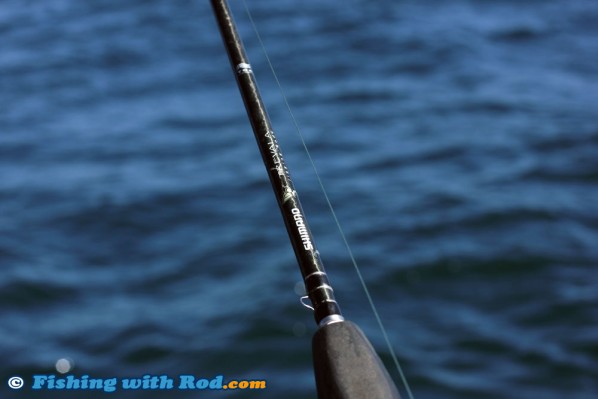
The tidal current eventually picked up as we approached its peak, so our weights were no longer settling on the bottom as much. Gord worked hard to keep the bait close to the bottom where the fish are usually feeding, by letting line out once every few minutes. His persistence was finally paid off, when one of the rods showed some signs of life just before the tide peaked.
Gord instructed us to be patient as the fish would hook itself on the circle hook. It initially gave the rod a couple of quick taps but left the bait alone for a few minutes. It then returned to chomp on the bait a few more times. This repeated for almost ten minutes until it finally committed. The rod arched in the rod holder and gave it the signature halibut head shake. Gord took the rod out of the holder, handed to Jess who was both excited and nervous. With 600ft of line out, it was going to be a long battle!
Unlike salmon, halibut do not usually run as they are brought up from the deep. The fish gave Jess a few head shakes as it came up. Gord said once these fish reach around the 60ft depth mark, they usually start fighting more due to exposure to more light. Sure enough, the fish began to pull harder as it got closer to the boat, putting Jess to work even harder. With 550ft of line reeled in, she was already quite exhausted. As the fish reached the surface, the sore arms were long forgotten, both Jess and Kitty were screaming with joy. Who wouldn’t be when you were about to land the biggest fish of your lifetime!
The most critical part of the fight is when the fish reaches the surface, because the brute force of these giant flatfish is hard to control. Gord first gaffed the fish while it swam beside the boat, dispatched it and finally secure it with a rope. The fish weighed in at 36lb, which was the perfect size for eating.
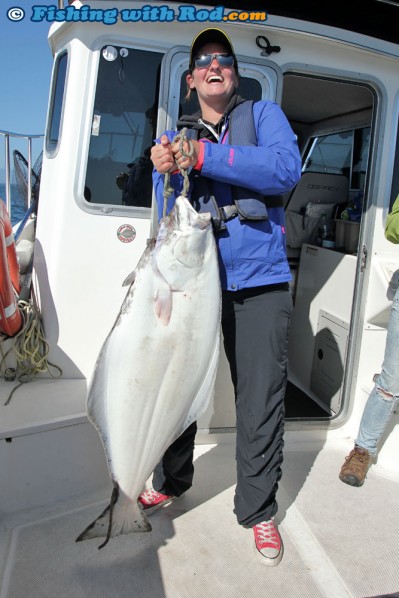
The celebration didn’t last long as the second rod began to bend soon afterward. Unlike the first fish, this one did not hesitate and began peeling line out while the rod was still in the holder. Gord handed the rod to Kitty, who last year caught her first halibut already. Instead of fighting the fish while the rod sat in the holder like last year, she decided to try the lift and retrieve method. Kitty was slightly luckier, the tide was not as strong anymore so there was less line to reel in.
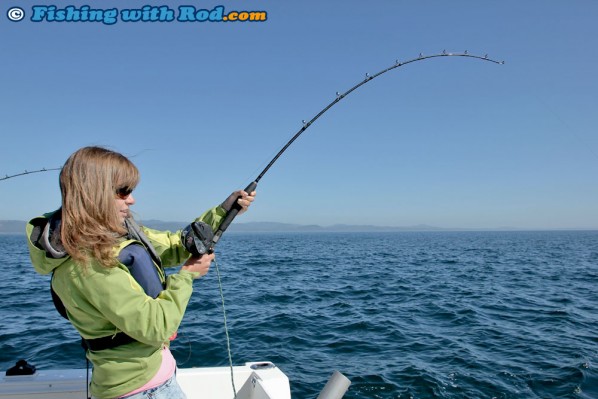
It was still exhausting apparently, because Kitty’s legs were shaking once the fish reached the surface. It was a slightly smaller fish, weighing in at 33lb. The harvested pair already made this an excellent trip and we had only been fishing for four hours.
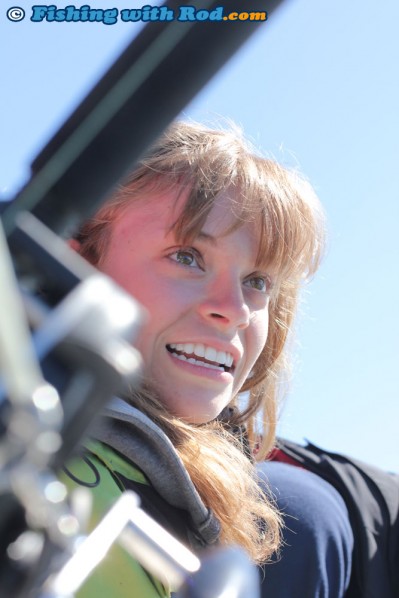
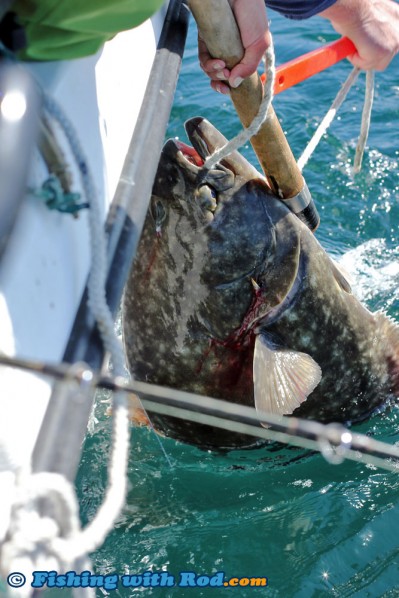
With two fish retained, Gord sent the rods down to the deep again hoping to get another one. Unfortunately the rest of the halibut lost their appetite. We managed to bring in a nice size rockfish before ending the trip at Noon.
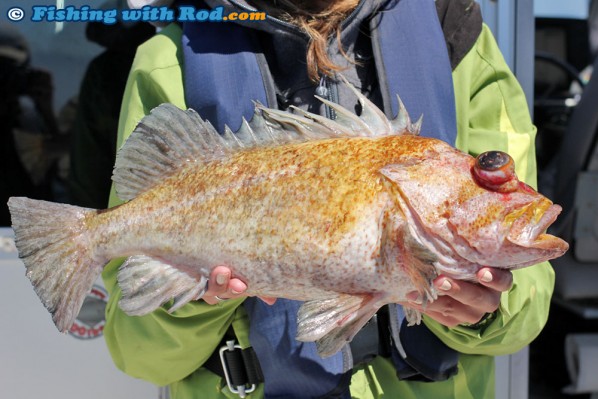
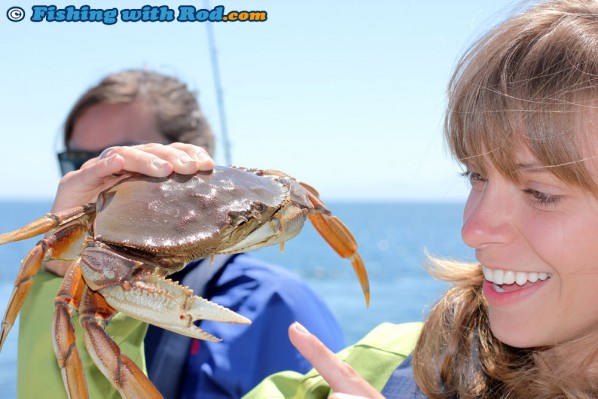
Once we returned to the marina, a crowd of tourists was excited to see our fine catches. Fresh halibut within 20 minute boat ride from shore, we were definitely spoiled!
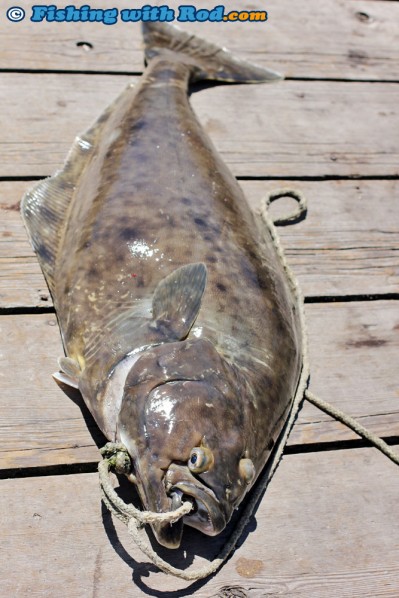
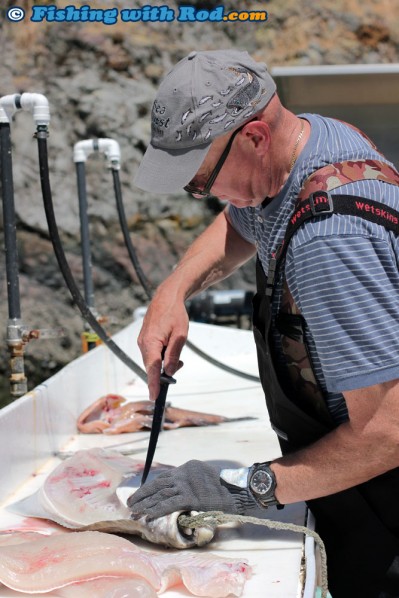
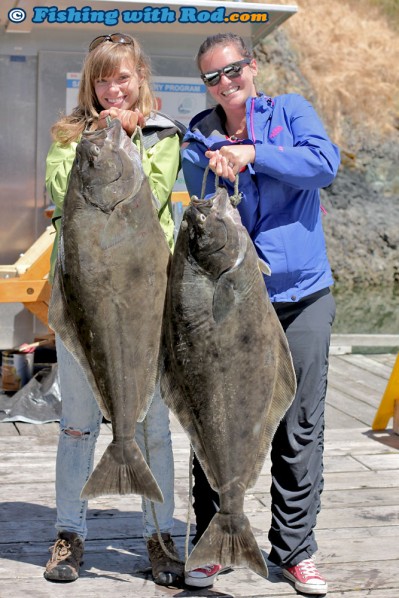
Many thanks to our guide Gord for this fantastic halibut fishing trip. While being able to bring home some fish from a guided fishing trip is nice, the most valuable experience is in fact the local knowledge from a guide who is willing to share and Gord is definitely one of them. I really appreciate that I now have a better understanding on the halibut fishery after the trip.
Pedder Bay Marina is approximately 40 minutes drive from Downtown Victoria. Because most of the trips start quite early in the morning, it’s best to catch the ferry to Victoria the night before if you are coming from Vancouver. If you’d like to book a trip with Gord at Sea Ghost Charters, please visit his website where he has listed all the available best dates for halibut fishing based on the tide. The halibut fishery in British Columbia usually opens on February 1st but Gord does not start his charters until March 1st, and it lasts until late November unless an earlier closure is announced in-season.

